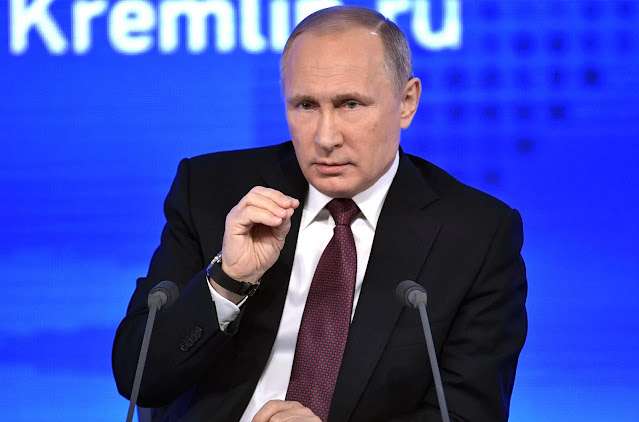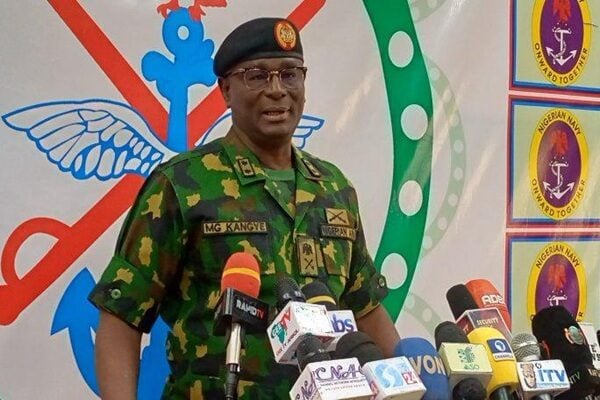On September 5, 2025, Russian President Vladimir Putin issued a stark warning to Western nations, declaring that any deployment of their troops to Ukraine would render them “legitimate targets” for Russian military forces. This statement, delivered during a press conference in Vladivostok, Russia, at the Eastern Economic Forum, marks a significant escalation in the ongoing rhetorical and strategic tensions surrounding the Russia-Ukraine conflict. Putin’s remarks were a direct response to discussions among Western leaders about the possibility of deploying troops to Ukraine, either in a combat or support capacity, as the war enters its fourth year with no clear resolution in sight. The Russian leader’s comments underscore the precarious balance of power in Eastern Europe and raise critical questions about the potential for direct confrontation between NATO and Russia, a scenario that could have catastrophic global consequences.
This article explores Putin’s warning in depth, delving into the context of the Russia-Ukraine conflict, the motivations behind Russia’s stance, the reactions from Western governments, and the broader implications for international security. It also examines the historical roots of the conflict, the role of NATO and Western powers, and the potential pathways forward in a world teetering on the edge of further escalation.
The Context of Putin’s Warning
To fully understand the significance of Putin’s statement, it is essential to revisit the origins and evolution of the Russia-Ukraine conflict, which has shaped global geopolitics since Russia’s annexation of Crimea in 2014. The current war, which began with Russia’s full-scale invasion of Ukraine on February 24, 2022, has been one of the most significant geopolitical crises of the 21st century. The conflict has not only devastated Ukraine, causing tens of thousands of deaths and displacing millions, but it has also reshaped international alliances, disrupted global energy and food markets, and heightened tensions between Russia and the West to levels not seen since the Cold War.
Historical Background: Russia, Ukraine, and the West
The roots of the Russia-Ukraine conflict lie in a complex interplay of historical, cultural, and geopolitical factors. Ukraine, a former Soviet republic, has long been a buffer state between Russia and the West. After gaining independence in 1991 following the dissolution of the Soviet Union, Ukraine pursued a delicate balancing act, maintaining economic and political ties with both Russia and Western institutions like the European Union (EU) and NATO. However, tensions began to mount in the early 2000s as Ukraine increasingly leaned toward integration with the West, a move Russia perceived as a direct threat to its sphere of influence.
The turning point came in 2014, when Ukraine’s pro-Russian president, Viktor Yanukovych, was ousted during the Maidan Uprising, a popular movement driven by demands for closer ties with the EU. Russia responded by annexing Crimea, a strategically important peninsula in southern Ukraine, and supporting separatist movements in the eastern regions of Donetsk and Luhansk. These actions sparked a low-intensity conflict in eastern Ukraine that persisted until the full-scale invasion in 2022.
Russia’s 2022 invasion was justified by Putin as a “special military operation” to protect Russian-speaking populations in Ukraine and to counter what he described as NATO’s aggressive expansion toward Russia’s borders. The invasion, however, was met with fierce Ukrainian resistance, bolstered by significant military and financial support from the United States, the EU, and other Western allies. Over the past three years, the war has evolved into a grueling conflict of attrition, with neither side achieving a decisive victory.
Western Involvement in Ukraine
Western support for Ukraine has been a cornerstone of the country’s ability to resist Russian aggression. Since 2022, the United States alone has provided over $75 billion in military, financial, and humanitarian aid, according to estimates from the U.S. Department of Defense. The EU, individual European nations, and other allies, including Canada, Australia, and Japan, have also contributed billions in aid, supplying Ukraine with advanced weaponry, including HIMARS rocket systems, Patriot air defense systems, and Leopard 2 tanks.
However, the question of deploying Western troops to Ukraine has remained a contentious issue. While NATO has repeatedly stated that it has no intention of engaging in direct combat with Russian forces, some member states, particularly those in Eastern Europe like Poland and the Baltic states, have advocated for a stronger military presence to deter further Russian aggression. France, under President Emmanuel Macron, has also floated the idea of deploying troops in non-combat roles, such as training Ukrainian forces or securing critical infrastructure. These discussions have provoked sharp reactions from Moscow, which views any Western military presence in Ukraine as a direct challenge to its security.
Putin’s Statement: A Closer Look
During the press conference in Vladivostok, Putin was responding to a question about the potential deployment of Western troops to Ukraine. His remarks were unequivocal: “If Western countries send their troops to Ukraine, they will become legitimate targets for our armed forces. This would be a significant escalation, and the consequences would be serious.” He further emphasized that Russia would take “all necessary measures” to protect its interests, a phrase that has often been interpreted as a veiled threat of military retaliation, potentially extending beyond Ukraine’s borders.
Putin’s warning is not the first of its kind. Throughout the conflict, Russian officials have repeatedly cautioned against Western military involvement, framing it as a step toward a broader confrontation between Russia and NATO. In May 2024, for example, Russian Foreign Minister Sergey Lavrov warned that NATO’s supply of long-range weapons to Ukraine was “playing with fire.” Putin’s latest statement, however, is notable for its directness and timing, coming at a moment when Western leaders are grappling with growing calls to increase support for Ukraine as Russian forces make incremental gains in the Donbas region.
Strategic Implications of the Warning
Putin’s declaration serves multiple strategic purposes. First, it is a clear signal to Western governments that Russia views any troop deployment as a red line that could trigger a direct military response. By framing Western troops as “legitimate targets,” Putin is attempting to deter NATO and its allies from escalating their involvement beyond the current level of arms supplies and intelligence sharing.
Second, the warning is aimed at a domestic audience. Putin’s leadership has relied heavily on projecting strength and resolve in the face of perceived Western aggression. By issuing such a stark warning, he reinforces his image as a defender of Russian sovereignty, rallying nationalist sentiment at a time when the war in Ukraine has strained Russia’s economy and military resources.
Third, the statement is part of a broader Russian strategy to sow division among Western allies. NATO’s unity has been a critical factor in sustaining support for Ukraine, but there are cracks in the alliance. Countries like Hungary and Slovakia have expressed reservations about escalating military aid, while public opinion in some Western nations is growing wary of the financial and political costs of prolonged involvement. By raising the specter of direct conflict, Putin may hope to exacerbate these divisions, encouraging caution among more hesitant NATO members.
Global Reactions to Putin’s Warning
The international response to Putin’s statement was swift, reflecting the high stakes of the Russia-Ukraine conflict and the broader implications for global security.
United States
The U.S. State Department reiterated its commitment to supporting Ukraine while emphasizing that it has no plans to deploy combat troops. “Our focus remains on providing Ukraine with the tools it needs to defend itself against Russian aggression,” said a State Department spokesperson. “We are not seeking a direct confrontation with Russia, but we will not be intimidated by threats.” The Biden administration has faced domestic pressure to balance robust support for Ukraine with avoiding actions that could lead to a wider war. Recent debates in Congress over additional aid packages highlight the challenges of maintaining bipartisan support for Ukraine as the 2026 midterm elections approach.
European Union
The EU’s response was more varied, reflecting the diverse perspectives of its 27 member states. European Council President Charles Michel condemned Putin’s remarks as “reckless and provocative,” but he stopped short of addressing the question of troop deployments directly. France, which has been one of the most vocal advocates for a stronger European role in Ukraine, reaffirmed its commitment to exploring “all options” to support Kyiv. French Foreign Minister Jean-Noël Barrot stated, “We cannot allow Russia to dictate the terms of our support for a sovereign nation. Ukraine’s fight is Europe’s fight.”
In contrast, Hungary’s Prime Minister Viktor Orbán, who has maintained a relatively pro-Russian stance within the EU, called for de-escalation and renewed diplomatic efforts. “The risk of a broader war is real, and Europe must prioritize peace over provocation,” Orbán said in a statement. This divergence underscores the challenges the EU faces in maintaining a unified front.
NATO
NATO Secretary General Jens Stoltenberg, whose tenure is set to end in October 2025, issued a measured response, emphasizing the alliance’s commitment to supporting Ukraine while avoiding direct conflict with Russia. “NATO’s priority is to ensure Ukraine has the resources to defend itself, but we are not a party to the conflict,” Stoltenberg said. He also noted that NATO’s military exercises in Eastern Europe, including the recent “Steadfast Defender” drills, are designed to deter aggression without provoking escalation.
Ukraine
In Kyiv, Ukrainian officials welcomed continued Western support but expressed frustration at the hesitancy of some allies to take bolder steps. President Volodymyr Zelenskyy, who has repeatedly called for more direct Western involvement, including the establishment of a no-fly zone or the deployment of peacekeeping forces, described Putin’s warning as “predictable but dangerous.” In a televised address, Zelenskyy urged NATO to “stop treating Ukraine as a buffer zone and start treating it as a partner in European security.”
Other Global Powers
Beyond the West, Putin’s warning resonated in capitals around the world. China, which has maintained a delicate balancing act between supporting Russia diplomatically and avoiding direct involvement in the conflict, called for restraint from all parties. A spokesperson for the Chinese Foreign Ministry stated, “The situation in Ukraine requires dialogue and de-escalation, not further militarization.” India, another key player with historical ties to both Russia and the West, reiterated its call for a peaceful resolution through negotiations.
The Broader Geopolitical Landscape
Putin’s warning comes at a time when the global geopolitical landscape is undergoing significant shifts. The Russia-Ukraine conflict is not an isolated event but part of a broader struggle for influence and power in a rapidly changing world order.
NATO’s Expansion and Russia’s Response
One of the central drivers of the conflict is Russia’s perception of NATO’s eastward expansion as an existential threat. Since the end of the Cold War, NATO has grown from 16 to 31 members, with Finland and Sweden joining in 2023 and 2024, respectively, in direct response to Russia’s invasion of Ukraine. For Putin, NATO’s presence near Russia’s borders, particularly in Ukraine, represents an unacceptable encroachment on Russia’s sphere of influence. His warning about Western troops is a reiteration of this long-standing grievance, which has been a consistent theme in Russian foreign policy since the 1990s.
The Role of Energy and Economic Sanctions
The war has also had profound economic consequences, particularly in the realm of energy. Russia, a major supplier of natural gas to Europe, has faced severe sanctions that have disrupted its energy exports. In response, Europe has accelerated its transition to alternative energy sources, including liquefied natural gas (LNG) from the United States and renewable energy investments. However, the transition has been costly, contributing to inflation and energy crises in several European countries.
Sanctions have also taken a toll on Russia’s economy, though the country has mitigated some of the impact through trade with non-Western partners like China, India, and Turkey. Putin’s warning may also be an attempt to signal resilience, demonstrating to both domestic and international audiences that Russia remains capable of projecting power despite economic pressures.
The Risk of Escalation
The most immediate concern raised by Putin’s statement is the risk of escalation. A direct confrontation between Russian and Western forces in Ukraine could quickly spiral into a broader conflict, potentially drawing in NATO’s full military apparatus. Such a scenario would have devastating consequences, given the nuclear capabilities of both Russia and NATO. While both sides have so far avoided actions that would lead to direct conflict, the increasing involvement of Western weapons and personnel in Ukraine raises the stakes.
Analysts have pointed to several potential flashpoints. For example, if Western troops were deployed to Ukraine in a training or advisory capacity and were targeted by Russian forces, it could trigger a retaliatory response from NATO. Similarly, Russia’s use of tactical nuclear weapons, which Putin has hinted at in the past, would almost certainly provoke a severe Western response, potentially leading to a global crisis.
Pathways Forward: Diplomacy or Confrontation?
As the war in Ukraine grinds on, the international community faces a critical question: how can the conflict be resolved without triggering a broader war? Several pathways have been proposed, though none are without challenges.
Diplomatic Efforts
Diplomatic efforts to end the war have so far yielded little progress. Peace talks in the early months of the conflict, mediated by Turkey and others, collapsed as both sides hardened their positions. Ukraine insists on the full withdrawal of Russian forces and the restoration of its 1991 borders, including Crimea, while Russia demands recognition of its territorial gains and guarantees that Ukraine will remain neutral and outside NATO.
Putin’s latest warning complicates the prospects for diplomacy, as it signals a hardening of Russia’s stance. However, some analysts argue that renewed negotiations, possibly involving neutral mediators like India or the United Nations, could provide a way forward. Such talks would need to address not only the immediate issues of territorial control but also the broader question of European security architecture, including NATO’s role and Russia’s concerns about encirclement.
Military Support and Deterrence
For now, the West’s strategy remains focused on providing Ukraine with the military and financial support needed to hold its ground. The delivery of advanced weapons, such as F-16 fighter jets and ATACMS missiles, has bolstered Ukraine’s capabilities, but it has also raised concerns about escalation. Some Western leaders have advocated for a “deterrence by denial” strategy, ensuring that Ukraine can prevent Russian advances without requiring direct Western military involvement.
The Role of Public Opinion
Public opinion in Western countries will play a crucial role in shaping the response to Putin’s warning. In the United States, for example, support for Ukraine remains strong but is not universal. Polls conducted in 2025 show that a significant portion of the American public is concerned about the costs of continued aid, particularly in the context of domestic economic challenges. Similar sentiments exist in Europe, where energy prices and inflation have strained household budgets.
Conclusion
Vladimir Putin’s warning that Western troops in Ukraine would be considered “legitimate targets” is a sobering reminder of the stakes in the ongoing Russia-Ukraine conflict. As the war enters its fourth year, the prospect of direct confrontation between Russia and NATO looms as a dangerous possibility, with implications for global stability, security, and prosperity. The international community must navigate a delicate balance, supporting Ukraine’s sovereignty while avoiding actions that could lead to catastrophic escalation.
The path forward requires a combination of robust deterrence, diplomatic engagement, and strategic communication to address the underlying tensions driving the conflict. Whether the world moves toward peace or further confrontation will depend on the choices made by leaders in Moscow, Washington, Brussels, and Kyiv in the coming months. For now, Putin’s warning serves as a stark reminder that the Russia-Ukraine war remains one of the defining challenges of our time.






